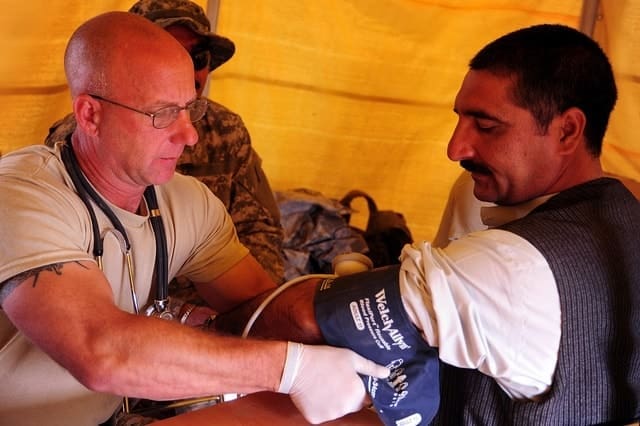

Visiting your doctor for regular health checks may be something that you’d rather not think about, but would you treat your car in the same head-in-the-sand fashion? We thought not.
Regular check-ups will help your doctor catch the early signs of any medical conditions that you may have, and it could even end up saving your life. During your examination, your doctor will ask you to explain your family’s medical history as well as your own, which will give them an insight into any high-risk areas you may fall into.
Diet, exercise, weight, and general well being will also be discussed so that your GP can build a better picture of your lifestyle to cross-reference with any data that may present itself during the examination.
What are the most common types of health checks?
While there are hundreds of different types of check-ups for specific illnesses, general health checks will generally focus on six main areas:
Diabetes
It is an unfortunate fact, but diabetes is on the increase. This is mainly a lifestyle issue, but it can also be hereditary so your family history will help to pinpoint whether or not you will be a high-risk case or not. Diabetes tests are usually carried out annually or every three years, depending on your particular risk level.
Heart
Widely regarded as your body’s most important organ, the heart is naturally something that you want to keep in good nick. Regular blood tests and blood pressure monitoring will help to keep you on track, as will monitoring your weight.
If you think you may be a little heavy, ask your doctor to check your BMI (Body Mass Index) and waist measurement. Over 50s may need to have an ECG (Electrocardiogram) every two to five years. Again, this is largely dependent on your medical history.
Prostrate
If you have a history of cancer (any type) within your family, prostrate testing from the age of 40 is recommended. For those without any adverse history, prostate screening from the age of 50 upwards is generally sufficient.
Bowels
As with the prostate, screening starts at 40 if you have a family history of cancer, 50 if you don’t. An FOBT (Faecal Occult Blood Test) checks your bowel movement for any traces of blood and men are generally advised to have this carried out once every two years.
Bones
Although more common in women, osteoporosis can affect men too. Age is one of the biggest factors and it is generally advisable to have bone density checks run regularly once you pass the age of 50.
Eyes
While eyesight will generally deteriorate with age, regular testing may be advisable for younger men if they have a family history of eye disease or other conditions such as diabetes or high blood pressure. All men, regardless of age, would be well advised to have their eyes tested every two years.
Having regular health check ups is not only advisable, it’s essential if you want to live a happy and healthy life. Call your GP today and discuss which tests will be most applicable to you. As well as staying in contact with your doctor, it is worth finding the best health insurance so that you do not face any financial strain. You can compare results with a Health Insurance Finder and find results that are perfectly tailored to you.
Image Source; Image Source; Image Source





